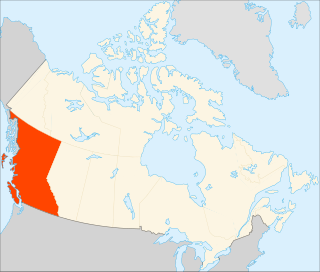Related Research Articles
Distance education, also known as distance learning, is the education of students who may not always be physically present at school, or where the learner and the teacher are separated in both time and distance. Traditionally, this usually involved correspondence courses wherein the student corresponded with the school via mail. Distance education is a technology-mediated modality and has evolved with the evolution of technologies such as video conferencing, TV, and the Internet. Today, it usually involves online education and the learning is usually mediated by some form of technology. A distance learning program can either be completely a remote learning, or a combination of both online learning and traditional offline classroom instruction. Other modalities include distance learning with complementary virtual environment or teaching in virtual environment (e-learning).
Higher education in Mauritius includes colleges, universities and other technical institutions. Public university education has been free to students since 2019. The sector is managed by the Higher Education Commission (HEC) which has the responsibility for allocating public funds, and fostering, planning and coordinating the development of post-secondary education and training. Formerly the Tertiary Education Commission, in 2020 it was reformed into the HEC and a separate Quality Assurance Authority (QAA) for auditing of qualifications.

Education in Portugal is free and compulsory until the age of 18, when students usually complete their year 12. However, only one of those requirements is necessary. The education is regulated by the State through the Ministry of Education. There is a system of public education and also many private schools at all levels of education. The first Portuguese medieval universities, such as the University of Coimbra, were created in the 13th century, and the national higher education system is fully integrated into the European Higher Education Area.
A virtual university provides higher education programs through electronic media, typically the Internet. Some are bricks-and-mortar institutions that provide online learning as part of their extended university courses while others solely offer online courses. They are regarded as a form of distance education. The goal of virtual universities is to provide access to the part of the population who would not be able to attend a physical campus, for reasons such as distance—in which students live too far from a physical campus to attend regular classes; and the need for flexibility—some students need the flexibility to study at home whenever it is convenient for them to do so.

Education in Mauritius is managed by the Ministry of Education & Human Resources, which controls the development and administration of state schools funded by government, but also has an advisory and supervisory role in respect of private schools. The Tertiary education is maintained by the Ministry of Tertiary Education, Science, Research and Technology. The government of Mauritius provides free education to its citizens from pre-primary to tertiary levels. Since July 2005, the government also introduced free transport for all students. Schooling is compulsory up to the age of 16. Mauritian students consistently rank top in the world each year for the Cambridge International O Level, International A and AS level examinations. Among sub-Saharan African countries, Mauritius has one of the highest literacy rates. The adult literacy rate was at 91.9% in 2022. According to the 2022 census, the proportion of people with higher education has increased to 8.8%. Mauritius was ranked 57th in the Global Innovation Index in 2023, 1st in Africa.

The Open University of the Pamantasan ng Lungsod ng Maynila (PLM) or University of the City of Manila headquartered at the Gusaling Don Pepe Atienza at Intramuros, Manila, has operated a continuing education program for working adults and professionals in its partner institutions and agencies in and out of the country. It is designed to provide higher education and improved qualifications to individuals who are unable to take advantage of traditional modes of education because of personal and professional responsibilities. Open University offers undergraduate and postgraduate degree programs.
Higher education in Portugal is divided into two main subsystems: university and polytechnic education. It is provided in autonomous public and private universities, university institutes, polytechnic institutes and higher education institutions of other types.

Indira Gandhi National Open University, known as IGNOU, is a public distance learning university located in New Delhi, India. Named after the former Prime Minister of India Indira Gandhi, the university was established in 1985 with a budget of ₹20 million, after the Parliament of India passed the Indira Gandhi National Open University Act, 1985. IGNOU is run by the central government of India, and with a total active enrollment of over 4 million students, it is the largest university in the world.
The College of Nursing, Trivandrum, Kerala, India, founded in 1972, is the pioneer institute for nursing education in Kerala and one of the earliest in South East Asia. It comes under the Directorate of Medical Education, Government of Kerala and is affiliated to the University of Kerala and the Kerala University of Health Sciences.

The Al-Madinah International University is an independent educational institution in Malaysia. It was established in 2006, founded on Islamic principles and values.

Higher education in Canada includes provincial, territorial, Indigenous and military higher education systems. The ideal objective of Canadian higher education is to offer every Canadian the opportunity to acquire the skills and knowledge necessary to realize their utmost potential. It aspires to cultivate a world-class workforce, enhance the employment rate of Canadians, and safeguard Canada's enduring prosperity. Higher education programs are intricately designed with the perspective of the learner in focus, striving to mitigate risks and assure definite outcomes.

Higher education in Alberta refers to the post secondary education system for the province of Alberta. The Ministry of Advanced Education in Alberta oversees educational delivery through universities, publicly funded colleges, technical institutions, and private colleges. These institutions offer a variety of academic and vocational pursuits. Students have access to post-secondary options through most regions of Alberta, and a developed articulation system allows for increased student mobility.

Higher education in British Columbia is delivered by 25 publicly funded institutions that are composed of eleven universities, eleven colleges, and three institutes. This is in addition to three private universities, five private colleges, and six theological colleges. There are also an extensive number of private career institutes and colleges. Over 297,000 students were enrolled in post-secondary institutions in British Columbia in the 2019-2020 academic year.
Since gaining independence from France in 1956, the government of Tunisia has focused on developing an education system which produces a solid human capital base that could respond to the changing needs of a developing nation. Sustained structural reform efforts since the early 1990s, prudent macroeconomic policies, and deeper trade integration in the global economy have created an enabling environment for growth. This environment has been conducive to attain positive achievements in the education sector which placed Tunisia ahead of countries with similar income levels, and in a good position to achieve MDGs. According to the HDI 2007, Tunisia is ranked 90 out of 182 countries and is ranked 4th in MENA region just below Israel, Lebanon, and Jordan. Education is the number one priority of the government of Tunisia, with more than 20 percent of government’s budget allocated for education in 2005/06. As of 2006 the public education expenditure as a percentage of GDP stood at 7 percent.
Higher education accreditation is a type of quality assurance process under which services and operations of post-secondary educational institutions or programs are evaluated to determine if applicable standards are met. If standards are met, accredited status is granted by the agency.

India has a publicly funded higher education system that is the third largest in the world. The main governing body at the tertiary level is the University Grants Commission, which enforces its standards, advises the government, and helps coordinate between the center and the state. Accreditation for higher learning is overseen by 15 autonomous institutions established by the University Grants Commission (UGC). Apart from these institutions, there are several parallel, state, and nationally accredited bodies that provide professional and vocational educational programs like the National Skill Development Corporation, Gramin Skill Development Mission, the Himayat, Kerala Academy for Skills Excellence, the Centre for Development of Advanced Computing, etc.

Higher education in Myanmar has experienced a large expansion since 1988, although ranks as one of the lowest globally for universities. Due to the student protests in the 8888 uprising, the Myanmar government closed down all universities for two years. Additional student protests in 1996 and 1998 caused all universities to be closed for another three years.
Self-Financing Higher Education in Hong Kong refers to educational programmes at the sub-degree level and above provided by local self-financing entities. Since the government announced the target of enabling 60% of secondary school graduates to receive higher education, the self-financing post-secondary education sector has experienced significant expansion with the aim of accommodating the emerging needs of the society.
Chreso University (CU) is a non-profit private higher-education institution located in the urban setting of the metropolis of Lusaka, Zambia. Established in 2010, this institution also has a branch campus in Ndola. Officially recognized by the Ministry of Higher Education of Zambia, Chreso University (CU) is a small coeducational Zambian higher education institution. Chreso University offers courses and programs leading to officially recognized higher education degrees such as pre-bachelor's degrees, bachelor's degrees, master's degrees, doctorate degrees in several areas of study. This institution has a selective admission policy based on students' past academic records. The admission rate range is 50-60% making this Zambian higher education organization a averagely selective institution. International applicants are eligible to apply for enrollment. CU also provides several academic and non-academic facilities and services to students including a library, housing, sports facilities, financial aids and/or scholarships, study abroad and exchange programs, online courses and distance learning opportunities, as well as administrative services.

The Open Learning Institute of British Columbia (OLI) was a single mode, distance education post-secondary provincial institute in Canada, created in 1978 by the Government of British Columbia. Its mandate was to improve access to higher education across the province by means of distance education and other open learning methods. Inspired in part by the UK Open University model, it used a combination of print-based courses, audiovisual media and telephone tutoring to offer courses up to the baccalaureate degree level. In 1988, it was subsumed in part as the BC Open University under the new Open Learning Agency (OLA). In 2005 it was amalgamated as the Open Learning Division with the newly designated Thompson Rivers University in Kamloops (TRU), BC. TRU was formerly known as the University College of the Cariboo.
References
- ↑ "LIST OF RECOGNISED UNIVERSITIES IN ZAMBIA 2015". Republic of Zambia Ministry of General Education. Archived from the original on 21 April 2016. Retrieved 26 October 2017.
- ↑ "Institution". www.whed.net. 21 June 2024. Retrieved 21 June 2024.